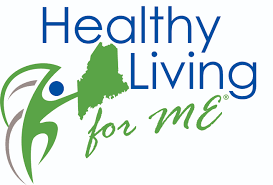Vitamin A and Miscarriage: Fact or myth?

Most likely, you have heard this statement several times. If not from your gynecologist, then maybe from your circle of friends. Or most likely from our digital teacher, Mr. Google. Our question today is: Is it true that Vitamin A causes miscarriages? Let us find out.
Pregnancy is marked by a period of increased nutrient demands. Vitamin A demand is particularly high during the third trimester due to accelerated fetal development. During this period, vitamin A is extremely important. It is linked to the formation of bones, protects the skin and mucosa, is essential for the health of reproductive organs, aids in developing epithelial tissue, and promotes the growth of healthy teeth and hair. Your baby's embryonic development, including the growth of the circulatory, respiratory, and central nervous systems and the development of the heart, lungs, kidneys, eyes, and bones, depends on vitamin A.
VAD affects up to 19 million women globally and is commonly observed in poor developing countries. Lack of this important vitamin causes xerophthalmia and keratomalacia. The fallacy that eating vitamin A-rich food will cause a miscarriage contributes majorly to VAD.
Animal studies have provided compelling evidence that VAD negatively impacts offspring during the embryonic and postnatal periods. The development of the primitive heart, circulatory system, and rhombencephalon requires vitamin A from the beginning. Significant abnormalities, including early embryonic mortality, are caused by VAD during this crucial period. Deficiency affects organs and systems such as the heart, central nervous system, circulatory, urogenital, and respiratory systems, as well as the skull, skeleton, and limbs. According to a recent study in rats, anorectal abnormalities can occur if there is a dietary vitamin A shortage two weeks before conception and during pregnancy. Studies in humans also suggest that low or excessive levels of vitamin A in the diet during pregnancy can result in congenital malformations in the fetus.
Why are we constantly warned about its imminent dangers if Vitamin A is so important for pregnant women? Some forms of vitamin A are toxic in high amounts. Vitamin A is available in two main forms: preformed vitamin A and provitamin A. The latter is obtained from vegetable sources, while the former is obtained from foods of animal origin and supplements. Most toxicity reports always come from supplemental vitamin A. High intakes of preformed vitamin A from supplements could lead to congenital malformations and spontaneous abortions in the first trimester.
The Recommended Dietary Allowance of Vitamin A during pregnancy is 770mcg per day. The safest way to meet this requirement is to obtain it from food sources. Beta-carotene is always safe, even in high amounts. You can also safely obtain vitamin A from animal sources. It is very unlikely to get too much vitamin A from food sources if you follow the standard diet guidelines. Always focus on obtaining this nutrient from food sources instead of supplements.
Good sources of vitamin A are sweet potato, dried apricots, carrots, pumpkin, butternut, and mustard greens. Dairy products and liver. Ensure that you don't overdo the liver; half a cup of the well-cooked liver is okay once or twice a week.
Tips for improving intake of vitamin A.
1. Make yourself a bowl of pumpkin soup before dinner
2. Mash sweet potatoes and serve them as a side dish for dinner
3. Always shred carrots and add them to your favorite salad
4. Blend mustard greens in your smoothie.
5. Add butternut squash to your spaghetti sauce recipe
Now that we have seen the importance of vitamin A refrain from following the myth that this vitamin causes miscarriages. Add vitamin A-rich foods to your diet for a strong immune system, glowing skin, and healthy pregnancy. And remember to stay away from vitamin A supplements unless prescribed by your gynecologist.







